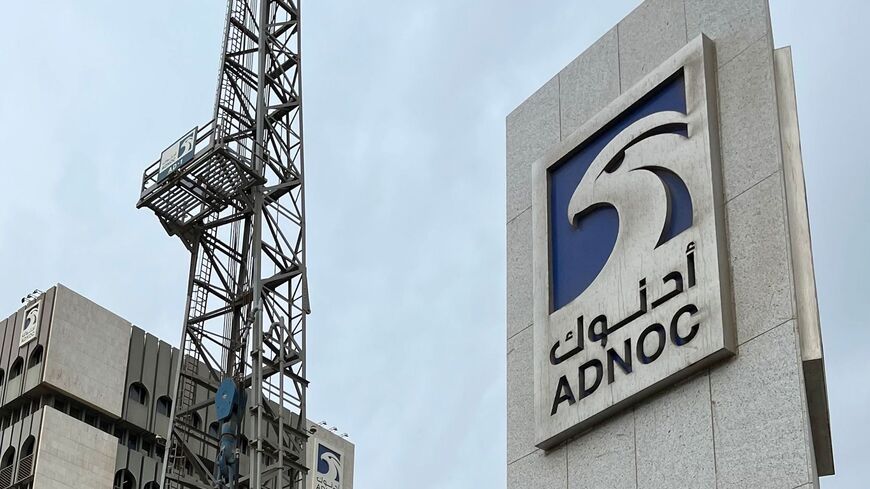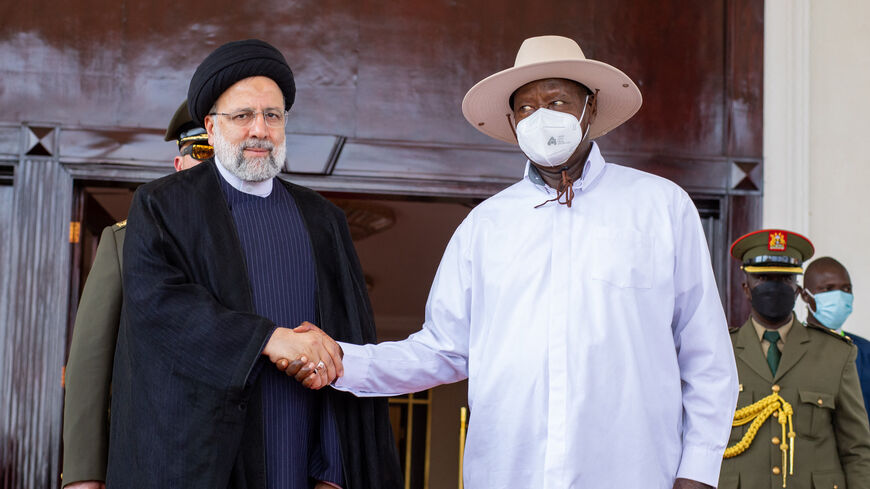Gulf states changing labor, visa and residency policies to attract foreign wealth, talent
Al-Monitor Pro Members
Dr. Robert Mogielnicki
Senior Resident Scholar, Arab Gulf States Institute in Washington, DC
Aug. 10, 2022
Governments in Gulf Cooperation Council (GCC) member states are vying to attract global wealth and talent as part of post-coronavirus, oil-fueled economic development trajectories. High-net-worth individuals, investors and specialized professionals can expect more schemes and incentives enabling long-term residency and employment in the Gulf region. Private-sector firms will simultaneously be expected to hire and train more local citizens over the coming years, with wealthier GCC governments likely offering financial incentives and policy flexibility to support broad workforce nationalization aims.
-
Cumulative crude oil exports by GCC countries are likely to exceed $500 billion in 2022, enabling Gulf countries like Saudi Arabia to post a $15.3 billion budget surplus in the first quarter of 2022 and realize 11.8% growth in gross domestic product for the second quarter of the year.
-
The UAE is set to attract 4,000 millionaires in 2022 and ranks first on the list of countries with the highest projected net inflows of high-net-worth individuals, according to the Henley Private Wealth Migration Dashboard.
-
The UAE announced in June 2022 an unemployment insurance scheme designed to protect both expatriate and Emirati workers and enhance financial security.
-
On April 18, 2022, the UAE Cabinet approved an overhaul of the country’s entry and residence system, adding several new visa options (including an expansion of its Golden visa offering) intended to come into effect by September 2022.
-
In 2021, the UAE government revealed that foreigners would be eligible for Emirati nationality through a select nomination process.
-
In November 2021, Saudi Arabia approved the granting of citizenship to foreign nationals with specialized skills.
-
The Saudi crown prince, Mohammed bin Salman (MBS), hopes to transform the capital Riyadh into a greener, cooler city with twice the current population.
-
MBS wants 100 million people living in Saudi Arabia by 2040, with 9 million of the country’s residents in Neom by 2045. Foreign nationals will constitute the bulk of this population growth.
-
Earlier in 2022, Bahrain announced a Golden Residency Visa with the possibility of indefinite renewal.
-
Oman’s Ministry of Commerce, Industry and Investment Promotion launched an Investor Residency Program to offer foreign investors and retirees long-term residence rights in the country. The program’s second phase will extend long-term residence to innovators, creators, programmers and entrepreneurs.
-
Following the UAE’s entry and residency system overhaul in April, the country’s Cabinet adopted a new system to increase Emiratization rates in the private sector. The UAE government hopes to boost Emiratization in the private sector to 10% by 2026, up from the minimum rate of 2%.
-
In July 2022, Oman banned expatriates from being employed in more than 200 job roles in the country.
-
The Saudi Ministry of Human Resources and Social Development began implementing the Saudization of marketing and administrative support jobs in April 2022, while the ministry initiated similar Saudization processes of secretary, translator, storekeeper and data entry operator roles in May.
Scenario 1: Gulf governments drastically increase demands on private-sector firms to hire and train local citizens through inflexible labor market policies, declining to offer state support through financial incentives and other initiatives.
-
It is tempting to believe that the coronavirus-induced economic downturn of 2020, when governments across the region focused primarily on urgent domestic challenges, has created a scenario wherein private-sector employers face intense pressure to assume greater responsibility for local employment. Longstanding workforce nationalization plans — especially in Saudi Arabia and Oman — and more recent moves, such as Saudi Arabia’s policy linking the provision of government contracts to foreign firms with the existence of a headquarters in the country, suggest the potential for more aggressive labor market policy demands on firms.
-
Yet the smaller Gulf states of Qatar, the UAE and Kuwait combine small national populations (reflecting a minority of total residents), substantial sovereign wealth holdings and large government bureaucracies. These states, therefore, face significantly less pressure to find suitable employment opportunities for their citizenry, resulting in less of a need for strict workforce nationalization policies. The remaining GCC states of Saudi Arabia, Oman and Bahrain must boost foreign direct investment as well as ensure the economic welfare of citizens, which constitute a larger proportion of total residents. Certain regulations pertaining to local employment will periodically be strict in these countries, but the broad policies will ultimately remain flexible, as these states must stay competitive with their regional counterparts.
Scenario 2: Gulf governments begin to significantly curtail the ability of expatriates and their families to visit the region for longer durations, obtain legal residency and secure employment opportunities.
-
In the aftermath of the 2014-15 oil price drop and ensuing austerity period, regional governments sought to reduce the number of expatriates in their countries to increase the supply of employment opportunities for citizens. Widespread expat visa bans in Oman and the formation of a national committee on demographic management in Kuwait — both of which occurred in 2018 — served as two prominent examples. In this context, the increasing availability of expatriates and their families to enter Gulf countries to live, work, study or retire could be viewed as impinging on the economic welfare of the region’s citizenry.
-
Yet the economic growth trajectories of all GCC countries are closely tied to growing populations of expatriate residents. Expatriates are essential markets for service provision by state-owned entities. Advancing high-priority sectors of economic development strategies, such as in the digital economy, requires inflows of foreign talent over the short and medium terms.
Gulf governments’ careful balancing of partially contradictory labor market policies will persist for the foreseeable future, especially alongside higher energy prices and robust growth rates. The available avenues for wealthy expatriates and skilled professionals to relocate to the region will continue to widen. Private-sector firms — apart from startups and smaller entrepreneurial ventures — will have to contend with more regulations intended to improve the quality and quantity of jobs available for national citizens, though governments are likely to offer financial incentives and policy flexibility on this front. Leading multinational firms promising large investments and reputational benefits for host economies will be in a strong position to take advantage of any labor policy flexibility.
There will be winners and losers amongst the region’s expatriate jobseekers. Expatriates occupying the lowest and highest skilled positions will largely be secure in their ability to find employment across the region, pending industry-specific demand trends. However, the middling category of semi-skilled expatriate professionals are most at risk of losing their jobs to local citizens. Those expatriates lacking specialized skillsets and occupying roles that average Gulf citizens are willing to perform represent the low-hanging fruit of workforce nationalization initiatives. Citizens unable to find adequate employment can generally expect more generous government support and social safety nets than were available in recent years.
Robert Mogielnicki is a senior resident scholar at the Arab Gulf States Institute as well as an adjunct assistant professor at Georgetown University and the George Washington University. He serves as an advisor with Freedom House and an external consultant with Eurasia Group. Dr. Mogielnicki is the author of "A Political Economy of Free Zones in Gulf Arab States" (Palgrave Macmillan 2021), and he is currently working on an edited volume about the political economy of sovereign wealth funds in the Middle East and Asia. He is a term member at the Council on Foreign Relations and a member of the board of advisors at Henley & Partners, an investment migration firm. He holds a DPhil from Magdalen College, University of Oxford.
We're glad you're interested in this memo.
Memos are one of several features available only to PRO Expert members. Become a member to read the full memos and get access to all exclusive PRO content.

Already a Member? Sign in
The Middle East's Best Newsletters
Join over 50,000 readers who access our journalists dedicated newsletters, covering the top political, security, business and tech issues across the region each week.
Delivered straight to your inbox.
Free
What's included:
Free newsletters available:
- The Takeaway & Week in Review
- Middle East Minute (AM)
- Daily Briefing (PM)
- Business & Tech Briefing
- Security Briefing
- Gulf Briefing
- Israel Briefing
- Palestine Briefing
- Turkey Briefing
- Iraq Briefing
Premium Membership
Join the Middle East's most notable experts for premium memos, trend reports, live video Q&A, and intimate in-person events, each detailing exclusive insights on business and geopolitical trends shaping the region.
$25.00 / month
billed annually
$31.00 / month
billed monthly
What's included:
Memos - premium analytical writing: actionable insights on markets and geopolitics.
Live Video Q&A - Hear from our top journalists and regional experts.
Special Events - Intimate in-person events with business & political VIPs.
Trend Reports - Deep dive analysis on market updates.
We also offer team plans. Please send an email to pro.support@al-monitor.com and we'll onboard your team.
Already a Member? Sign in







